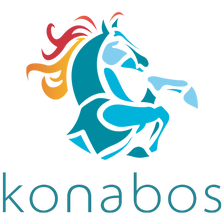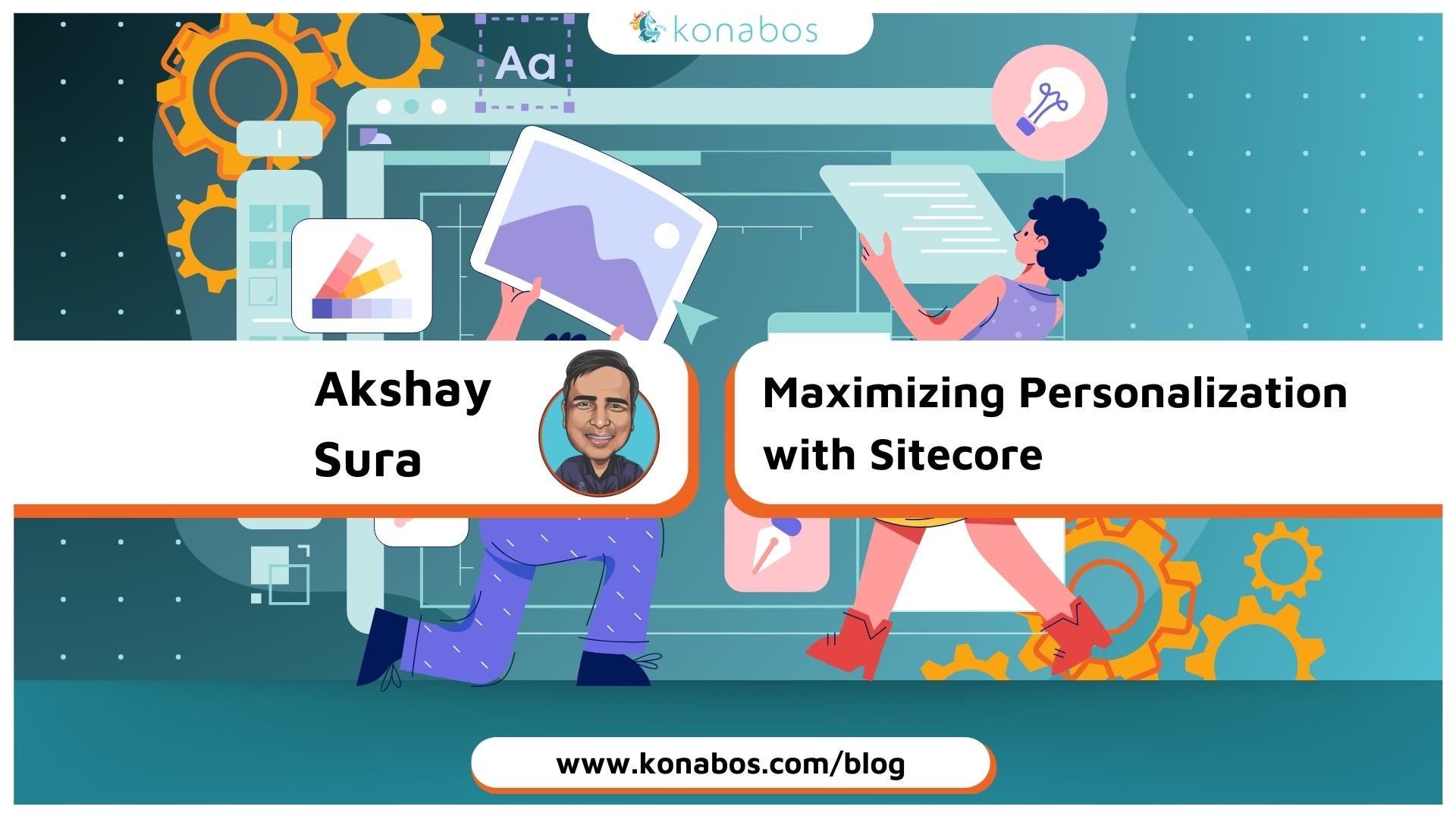Maximizing Personalization with Sitecore: Tips and Best Practices
Akshay Sura - Partner
26 Jun 2024
Personalization has become a key differentiator for businesses aiming to enhance their customer experience in the digital age. Tailoring content and interactions to individual preferences and behaviors can significantly improve engagement, loyalty, and conversion rates. Sitecore, a leading digital experience platform, offers robust personalization capabilities that can help businesses achieve these goals. This blog post will explore tips and best practices for maximizing personalization with Sitecore.
Understanding Personalization in Sitecore
Personalization in Sitecore involves delivering tailored content to users based on their behavior, preferences, and context. Sitecore's Experience Database (xDB) plays a crucial role by collecting and analyzing data from various touchpoints and creating comprehensive customer profiles. These profiles enable real-time personalization, ensuring each interaction is relevant and engaging.
Benefits of Personalization
Before diving into the tips and best practices, it's essential to understand the benefits of personalization:
1. Increased Engagement: Personalized content resonates more with users, leading to higher engagement levels.
2. Improved Conversion Rates: Tailoring offers and recommendations to individual preferences increases the likelihood of conversions.
3. Enhanced Customer Loyalty: Providing relevant and valuable experiences fosters trust and loyalty.
4. Better Customer Insights: Personalization efforts provide deeper insights into customer behavior and preferences.
Tips and Best Practices for Maximizing Personalization with Sitecore
1. Build Comprehensive Customer Profiles
To effectively personalize experiences, you need a detailed understanding of your customers. Sitecore's xDB collects data from various sources, including web interactions, email campaigns, social media, and offline touchpoints. Ensure that you are capturing all relevant data to build comprehensive customer profiles.
Best Practices:
- Integrate Data Sources: Integrate your CRM, marketing automation tools, and other data sources with Sitecore to unify customer data.
- Use Behavioral Data: Track and analyze user behavior, such as page views, clicks, and time spent on different site sections.
- Capture Preferences: Use forms, surveys, and other interactive elements to capture explicit user preferences and feedback.
2. Segment Your Audience
Segmentation is the foundation of effective personalization. You can tailor content more precisely by grouping users based on shared characteristics or behaviors.
Best Practices:
- Demographic Segmentation: Segment users based on demographic factors such as age, gender, location, and language.
- Behavioral Segmentation: Create segments based on user behavior, such as past purchases, browsing history, and engagement levels.
- Contextual Segmentation: Consider the context of the user's visit, such as the device they are using, the referral source, or the time of day.
3. Implement Real-Time Personalization
Sitecore's real-time personalization capabilities enable you to deliver dynamic content based on real-time interactions and contextual information. This ensures that users receive the most relevant content at the right moment.
Best Practices:
- Set Up Personalization Rules: Use Sitecore's rule-based personalization engine to define conditions and actions for different segments.
Leverage Machine Learning: Use Sitecore's Cortex machine learning engine to analyze data and automate personalization decisions.
- Test and Optimize: Continuously test different personalization strategies using A/B testing and multivariate testing to identify what works best.
4. Personalize the Entire Customer Journey
Personalization should extend across the customer journey, from the first touchpoint to post-purchase interactions. Ensure that your personalization efforts are consistent and cohesive across all channels.
Best Practices:
- Personalized Landing Pages: Create personalized landing pages based on the user's referral source or search query.
Dynamic Content Blocks: Use dynamic content blocks to display personalized messages, offers, and recommendations on your website.
- Email Personalization: Personalize email content based on user behavior and preferences, such as abandoned cart reminders, product recommendations, and personalized offers.
5. Leverage Sitecore's Omnichannel Capabilities
Today's customers interact with brands across multiple channels, including websites, mobile apps, social media, and physical stores. Sitecore's omnichannel capabilities ensure a seamless and consistent experience across all these touchpoints.
Best Practices:
- Headless CMS: Use Sitecore's headless CMS capabilities to deliver personalized content across different channels using APIs.
- Content Syndication: Syndicate personalized content to social media, email campaigns, and other platforms.
- In-Store Personalization: Integrate Sitecore with in-store systems to provide personalized experiences in physical locations.
6. Monitor and Analyze Performance
It's crucial to continuously monitor and analyze performance to maximize the effectiveness of your personalization efforts. Sitecore provides advanced analytics tools that help you understand how users interact with personalized content.
Best Practices:
- Experience Analytics: Use Sitecore's Experience Analytics to track and measure the performance of personalized content.
- Path Analyzer: Visualize customer journeys using Sitecore's Path Analyzer to identify common paths and optimize them for better engagement.
- A/B Testing: Conduct regular A/B tests to compare different personalization strategies and identify the most effective ones.
7. Focus on Data Privacy and Security
Personalization relies heavily on collecting and analyzing customer data. Prioritizing data privacy and security is essential to building customer trust and complying with regulations such as GDPR and CCPA.
Best Practices:
- Transparent Data Practices: Be transparent about your data collection practices and obtain explicit user consent.
- Data Security: Implement robust security measures to protect customer data from breaches and unauthorized access.
- Compliance: Ensure your personalization efforts comply with relevant data protection regulations and industry standards.
8. Foster Collaboration Between Teams
Effective personalization requires collaboration between different teams, including marketing, IT, and customer service. Foster a culture of collaboration and ensure that all teams are aligned with your personalization goals.
Best Practices:
- Unified Strategy: Develop a personalization strategy that aligns with your business objectives.
- Cross-Functional Teams: Create cross-functional teams with members from different departments to work on personalization initiatives.
- Regular Communication: Hold regular meetings and communication sessions to ensure that all teams are on the same page and working towards common goals.
Maximizing personalization with Sitecore involves leveraging its powerful capabilities to deliver tailored experiences that resonate with users. You can enhance engagement, conversions, and loyalty by building comprehensive customer profiles, segmenting your audience, implementing real-time personalization, and extending personalization across the customer journey. Additionally, leveraging Sitecore's omnichannel capabilities, monitoring performance, prioritizing data privacy, and fostering collaboration between teams is crucial for success. By following these tips and best practices, businesses can unlock the full potential of Sitecore and create exceptional personalized experiences that drive growth and customer satisfaction.
Ready to elevate your customer experience? Contact us today to learn how Sitecore personalization can transform your business!

Akshay Sura
Akshay is a ten-time Sitecore MVP and a two-time Kontent.ai. In addition to his work as a solution architect, Akshay is also one of the founders of SUGCON North America 2015, SUGCON India 2018 & 2019, Unofficial Sitecore Training, and Sitecore Slack.
Akshay founded and continues to run the Sitecore Hackathon. As one of the founding partners of Konabos Consulting, Akshay will continue to work with clients, leading projects and mentoring their existing teams.



Share on social media